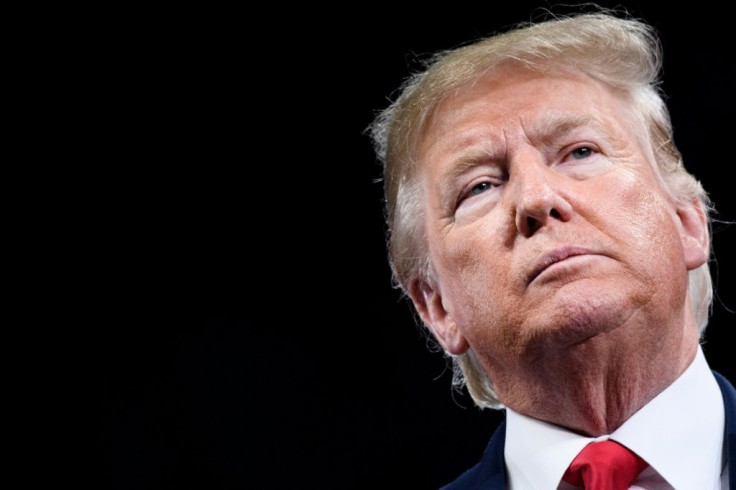Trump Impeachment: President Reacts At Rally, Says Abuse Of Power 'Not Even A Crime'

President Donald Trump lobbed some questionable comments Tuesday while at a rally in Hershey, Pennsylvania, arguing that the articles of impeachment of abuse of power against him are "not even a crime."
"Everyone said this is impeachment-lite. This is the lightest impeachment in the history of our country, by far. It's not even like an impeachment," Trump boasted.
Trump has been charged with abuse of power and obstruction of Congress, both of which are impeachable crimes. Abuse of power refers to Trump's leveraging of military aid to pressure Ukraine into an investigation of Hunter Biden, the son of Trump's Democratic political rival Joe Biden. Obstruction of Congress refers to how Trump has directed current and former executive branch officials to defy subpoenas and not cooperate with the impeachment inquiry.
“The U.S. has a national security interest in Ukraine and it does appear that what the president was doing was putting that national security interest at risk in exchange for political benefits,” Louis Michael Seidman, a professor at Georgetown Law School said. “If that is what happened, that is the core of what impeachment is about.”
Richard Nixon was accused of abusing his power before he resigned, allegedly using tax audits to target his political enemies. Abuse of power was also an article of impeachment levied against Bill Clinton.
Although obstruction of Congress is one of the charges levied against Trump, his legal team has argued that the entire impeachment process has been biased against him, and that's why he should not cooperate with the inquiry. Trump has frequently called impeachment a "witch hunt" or "hoax."
Hundreds of law professors have argued that Trump engaged in impeachable conduct.
“James Madison noted that Congress must be able to remove the president between elections lest there be no remedy if a president betrayed the public trust in dealings with foreign powers,” read a signed letter by 600 law professors that was released Friday.
© Copyright IBTimes 2024. All rights reserved.





















